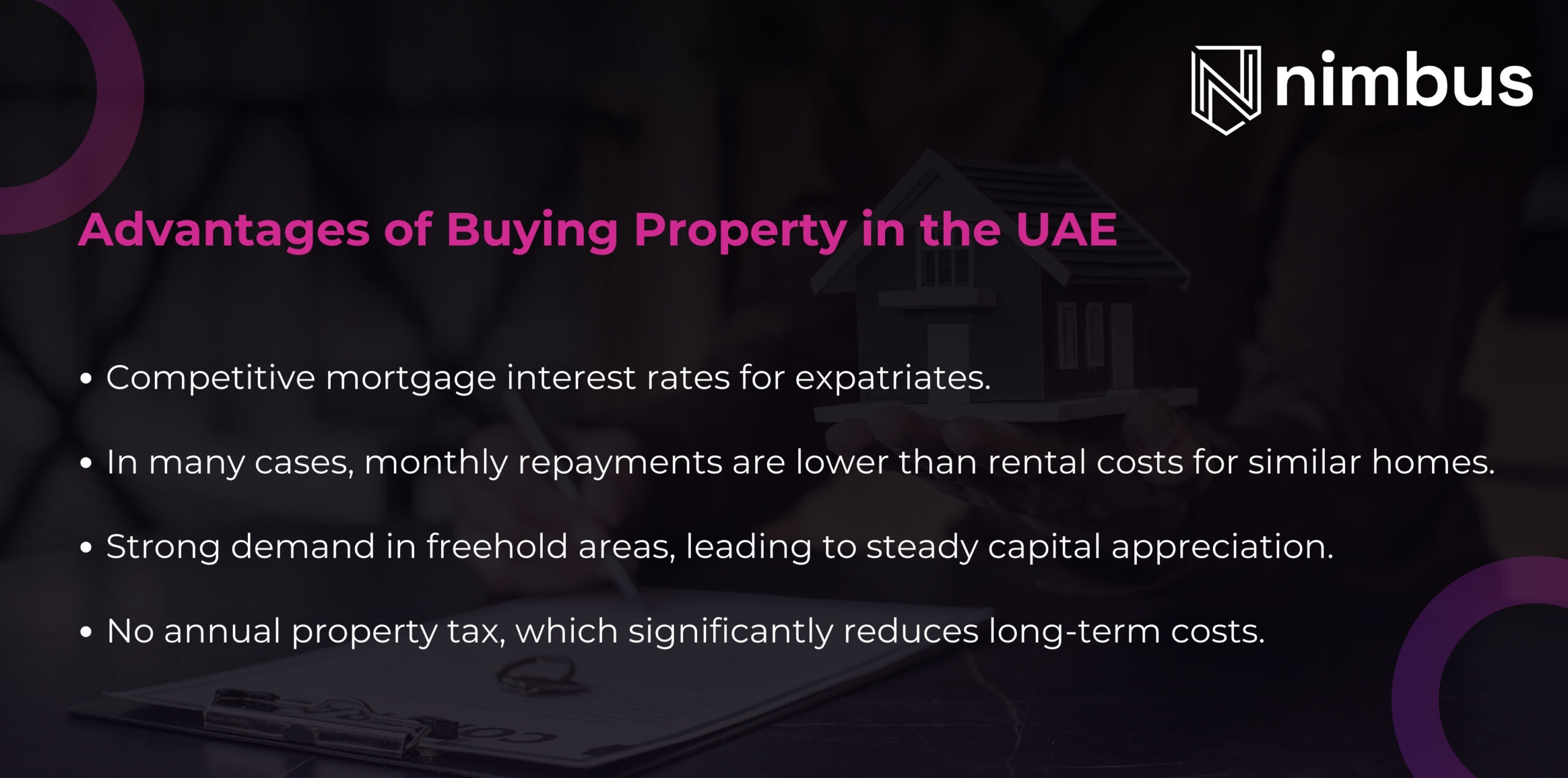The UAE property market has become one of the most attractive in the world, drawing in both local residents and international investors. With Dubai, Abu Dhabi, and other Emirates continuing to expand their real estate offerings, more expatriates are considering long-term investments in property.
However, the legal framework for property ownership in the UAE can differ for Emiratis and foreigners, making it essential for buyers to understand the rules before making decisions.
At the same time, with the UAE’s strong economy, strategic global position, and thriving opportunities for investment and company formation in the UAE, owning property is often part of a larger strategy that includes both lifestyle and professional goals.
This post breaks down the laws, processes, and practical details that foreign buyers need to know about UAE property ownership.
UAE Property Law in 2025 – Things You Should Know
1. Who Can Buy Property in the UAE?
For Emiratis, property ownership is straightforward, but expatriates face certain restrictions. Foreign buyers are allowed to purchase property in designated freehold zones only.
- In Dubai, expatriates can own property in more than 70 freehold areas. These include well-known locations such as Palm Jumeirah, JBR, Downtown Dubai, Dubai Creek Harbour, Arabian Ranches, Dubai Hills Estate, and Dubai Marina.
- The range of options allows foreigners to choose between beachfront apartments, luxury villas, golf course communities, or central urban spaces.
In Abu Dhabi, expatriates can buy property in government-designated investment zones such as Saadiyat Island, Yas Island, Reem Island, Maryah Island, Al Reef, Raha Beach, and Jubail.
These zones were specifically created to open the market to foreign investors while reserving other areas exclusively for UAE nationals.
2. Freehold vs Leasehold: What’s the Difference?
When considering property in Dubai or Abu Dhabi, it is important to understand the difference between freehold and leasehold.
- Freehold ownership means you own the property and the land it stands on, without a time limit. Owners can live in it, rent it out, sell it, or pass it on as inheritance.
- Leasehold ownership gives you the right to use a property for a fixed period, typically between 30 and 99 years. After that term, ownership reverts to the freeholder unless renewed.
Abu Dhabi also offers additional categories.
- Usufruct, a 99-year lease where you have rights to use the property.
- Musataha, a 49-year lease (renewable for another 49 years) where you can build on the land and lease what you build.
These structures give foreign investors different options depending on whether they want a permanent home, a long-term investment, or development rights.
3. How Does the Legal Process Work?
Property transactions in the UAE are highly regulated, but the exact process can vary between Emirates.
- In Dubai, the transfer process relies on a specific sales contract called Form F, which is signed between buyer and seller. This serves as the binding memorandum of understanding.
- In Abu Dhabi, two different legal jurisdictions apply. Properties in Reem Island and Maryah Island fall under the Abu Dhabi Global Market (ADGM) framework, while other properties are governed by the Abu Dhabi Real Estate Centre (ADREC). Each uses slightly different contract forms and processes.
4. Do You Need to Be a UAE Resident to Buy Property?
The answer is no. Non-residents can purchase property in designated freehold or investment zones. Buyers do not even need to be physically present in the UAE, as the process can be handled remotely.
For example, in Dubai, the Form F can be completed digitally, and ownership can be transferred using a power of attorney. This flexibility has encouraged many international investors to add UAE property to their global portfolio.
5. Advantages of Buying Property in the UAE
Property in the UAE remains a compelling choice for both lifestyle buyers and investors. Combined with the UAE’s overall stability, attractive residency options, and ease of UAE company formation, property ownership offers both personal and professional advantages. Some of the key advantages include:

- Competitive mortgage interest rates for expatriates.
- In many cases, monthly repayments are lower than rental costs for similar homes.
- Strong demand in freehold areas, leading to steady capital appreciation.
- No annual property tax, which significantly reduces long-term costs.
6. Advice for First-Time Buyers
Experts recommend that anyone considering buying property in the UAE should take the following steps:
- Research the location thoroughly. Each community offers unique amenities and lifestyle options.
- Understand the ownership structure (freehold, leasehold, usufruct, or Musataha) and how it impacts long-term rights.
- Budget for additional costs beyond the purchase price.
- Work with an experienced and reputable real estate broker who understands the legal process and has a strong track record.
- Carefully review the memorandum of understanding or sales contract before signing.
The Bigger Picture: Property and Business in the UAE
As the UAE continues to attract foreign direct investment and make processes easier, the links between real estate and UAE company formation are becoming stronger. For many expatriates and international investors, buying property in the UAE is part of a larger strategy that involves professional opportunities.
With streamlined business setup in the UAE, favorable tax policies, and strong international connectivity, many investors combine real estate ownership with starting a company.
Similarly, in Abu Dhabi and Dubai, residential property ownership can complement UAE business setup by providing a home base for entrepreneurs and executives. Property can also serve as an asset for those pursuing residency through investment.



